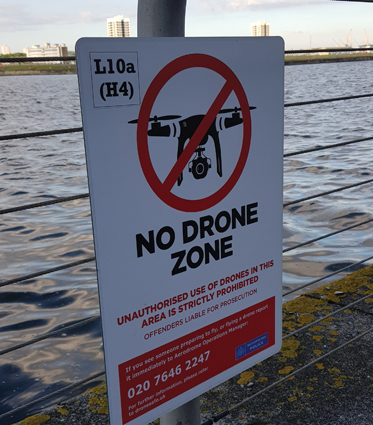Flying taxis and crime-fighting drones could be among the ‘future of flight’ realities by 2030, according to a Department for Transport (DfT) document. The ‘future of flight‘ plan supposes the first piloted flying taxi flight by 2026 and regular services by 2028, regular drone deliveries across skies by 2027 and demos of autonomous flying taxis without pilots on board by 2030. It’s hoped that the UK would by then have become ‘a leader in emerging aviation technologies’.
DfT Aviation and Technology Minister, Anthony Browne, said: ”Cutting-edge battery technology will revolutionise transport as we know it – this plan will make sure we have the infrastructure and regulation in place to make it a reality. From flying taxis to emergency service drones, we’re making sure the UK is at the forefront of this dramatic shift in transportation – improving people’s lives and boosting the economy.”
The document quotes a West Midlands Police (WMP) use of a drone to search for suspects; ‘the use of UAS [Uncrewed Aircraft Systems] was calculated by WMP to be quicker and more cost-effective than deploying a helicopter. Success stories like this result from a greater range of tactical options afforded to police forces by drones’ use and contribute to efficient allocation of resources to improve interoperability cross-emergency service,’ the document says. Also quoted in terms of workplace safety and critical national infrastructure is how sees.ai with Civil Aviation Authority (CAA) permission carries out aerial survey and inspection missions on a stretch of National Grid’s transmission lines.
Besides making the case for such air transport being more sustainable, the document points to uses in ‘search and rescue, monitoring the environment and new tools for the police to tackle crime’. The documents also traces a need for cyber security standards for such flying machines; in the words of the report, ‘a robust approach to information and physical security’.
Background
Uncrewed Aircraft Systems (UAS) – more commonly known as drones – used for commercial purposes, excludes aircraft designed to carry passengers; while electric, Vertical Take-Off and Landing vehicles (eVTOLs) may be used to transport passengers and cargo, according to the document. The document comes from a Future of Flight Industry Group (FFIG), co-chaired by the Aviation Minister and a representative from industry – Duncan Walker (Chief Executive Officer, Skyports). Among members are the regulator the CAA, a UK drone trade association ARPAS-UK, and the defence and security trade association ADS.
For the 24-page document, visit the Department for Transport website.
Photo by Mark Rowe; no drone zone sign, London Docklands near City Airport.










